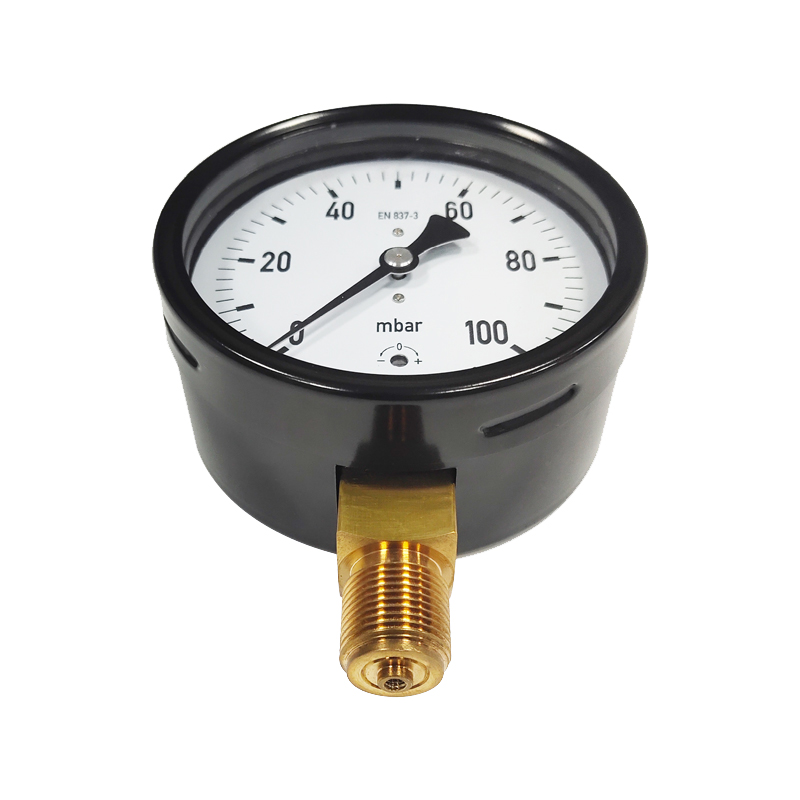
8月 . 15, 2024 09:00 Back to list
Innovative Custom Piston Differential Pressure Gauge for Accurate Measurement and Enhanced Performance
Understanding Custom Piston Type Differential Pressure Gauges
In industries where pressure measurement is critical, the accuracy and reliability of instruments can significantly impact operational efficiency and safety. One such instrument that plays a crucial role is the custom piston type differential pressure gauge. This highly specialized device is essential for applications where it is necessary to measure the difference in pressure between two points in a system, providing vital information for process control and monitoring.
What is a Piston Type Differential Pressure Gauge?
A piston type differential pressure gauge utilizes a piston mechanism to measure the pressure differential between two environments. It typically comprises a cylindrical housing containing a piston that moves within a fluid-filled chamber. When there is a difference in pressure on either side of the piston, it creates a force that displaces the piston. This displacement is then converted into a readable pressure differential measurement, often displayed on a calibrated dial or digital readout.
Customization and Its Importance
One of the standout features of piston type differential pressure gauges is their adaptability. Customization allows these instruments to be tailored to specific applications and environments, accommodating various factors such as pressure range, temperature fluctuations, media compatibility, and installation orientation. This flexibility ensures that industries, from oil and gas to pharmaceuticals, can obtain precise measurements that meet their unique operational requirements.
For instance, a custom gauge might be designed to withstand corrosive media in a chemical processing facility, using material that resists degradation. Similarly, in high-temperature applications, gauges can be engineered to function correctly without compromising accuracy due to thermal expansion or contraction.
Key Features and Advantages
custom piston type differential pressure gauge

Custom piston type differential pressure gauges offer a multitude of benefits, including
1. High Accuracy These gauges are renowned for their precision. The piston mechanism allows for minimal hysteresis and a high degree of accuracy, making them ideal for sensitive applications.
2. Durability Designed to endure harsh environments, custom gauges can be built from robust materials that withstand pressure, temperature, and corrosion, prolonging their lifespan.
3. Wide Range of Applications From liquid level measurement to flow monitoring, the versatility of piston type differential pressure gauges makes them suitable for various industries, including water treatment, HVAC systems, and manufacturing processes.
4. Simple Installation and Maintenance Many custom designs focus on ease of installation and maintenance, ensuring that users can quickly integrate the gauges into their systems and perform routine checks with minimal downtime.
Conclusion
The custom piston type differential pressure gauge is an invaluable tool for any industrial application where precise pressure measurement is paramount. By tailoring these instruments to meet specific needs and environmental conditions, industries can enhance their operational effectiveness and ensure safety standards are met. As technology advances, the development of these gauges will continue to provide more innovative solutions, helping various sectors achieve greater efficiency and reliability in their processes. Whether for monitoring pressure in a pipeline or measuring the pressure drop across filtration systems, the significance of customized piston type differential pressure gauges cannot be overstated in today’s industrial landscape.
-
High-Precision 5 Valve Manifold Differential Pressure Gauge Suppliers
NewsApr.29,2025
-
High-Precision Diaphragm Vacuum Pressure Gauges Manufacturers & Quotes
NewsApr.29,2025
-
Omega Differential Pressure Gauges High Accuracy & Durability
NewsApr.28,2025
-
Low Pressure Differential Pressure Gauges Precision Solutions & Quotes
NewsApr.28,2025
-
Digital Diaphragm Pressure Gaauge Precision Measurement & OEM Quotes
NewsApr.28,2025
-
Differential Pressure Gauge China Price High-Accuracy & Best Quotes
NewsApr.28,2025
